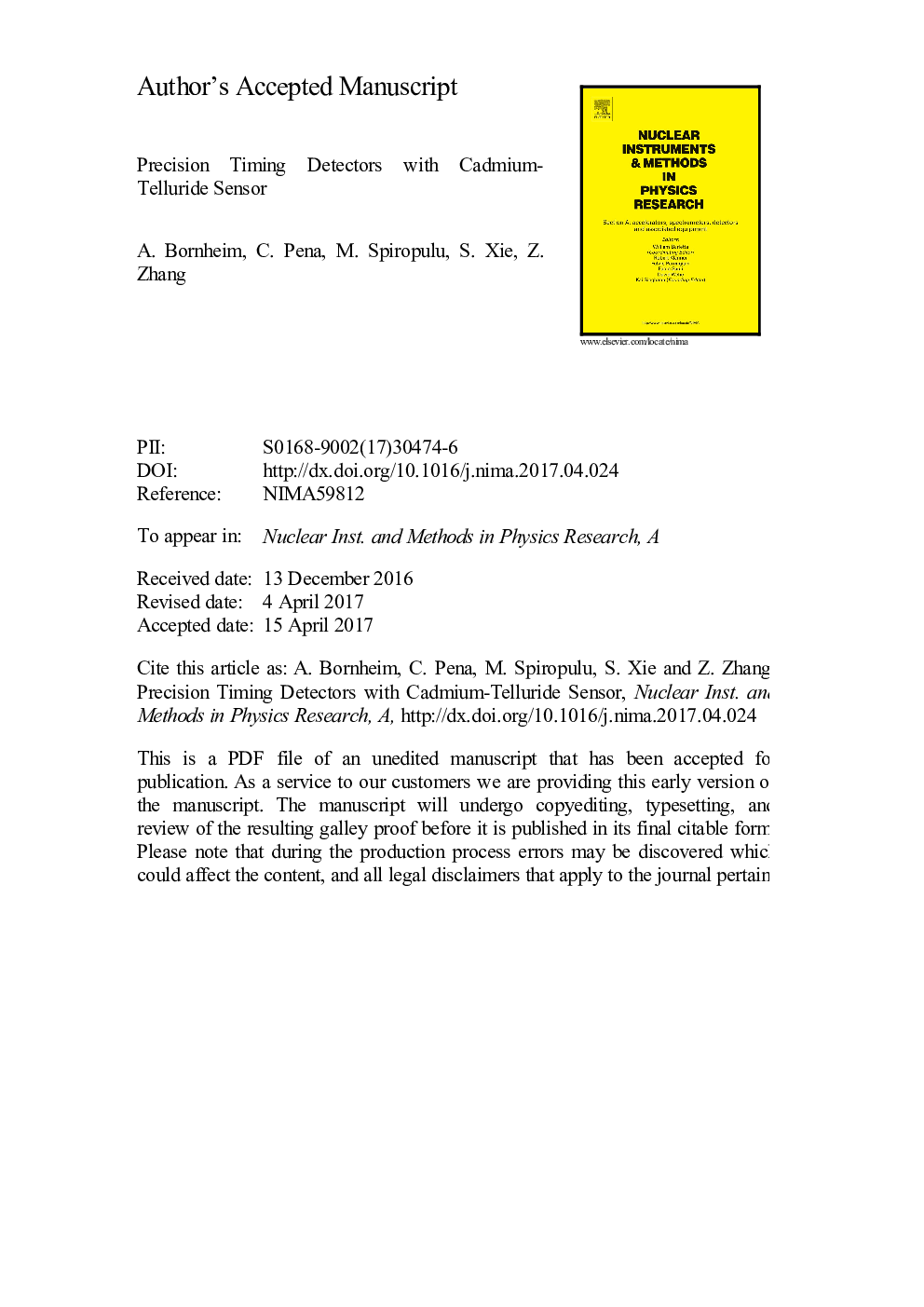| Article ID | Journal | Published Year | Pages | File Type |
|---|---|---|---|---|
| 5492969 | Nuclear Instruments and Methods in Physics Research Section A: Accelerators, Spectrometers, Detectors and Associated Equipment | 2017 | 16 Pages |
Abstract
Precision timing detectors for high energy physics experiments with temporal resolutions of a few 10 Â ps are of pivotal importance to master the challenges posed by the highest energy particle accelerators such as the LHC. Calorimetric timing measurements have been a focus of recent research, enabled by exploiting the temporal coherence of electromagnetic showers. Scintillating crystals with high light yield as well as silicon sensors are viable sensitive materials for sampling calorimeters. Silicon sensors have very high efficiency for charged particles. However, their sensitivity to photons, which comprise a large fraction of the electromagnetic shower, is limited. To enhance the efficiency of detecting photons, materials with higher atomic numbers than silicon are preferable. In this paper we present test beam measurements with a Cadmium-Telluride (CdTe) sensor as the active element of a secondary emission calorimeter with focus on the timing performance of the detector. A Schottky type CdTe sensor with an active area of 1cm2 and a thickness of 1 Â mm is used in an arrangement with tungsten and lead absorbers. Measurements are performed with electron beams in the energy range from 2 Â GeV to 200 Â GeV. A timing resolution of 20 Â ps is achieved under the best conditions.
Keywords
Related Topics
Physical Sciences and Engineering
Physics and Astronomy
Instrumentation
Authors
A. Bornheim, C. Pena, M. Spiropulu, S. Xie, Z. Zhang,
